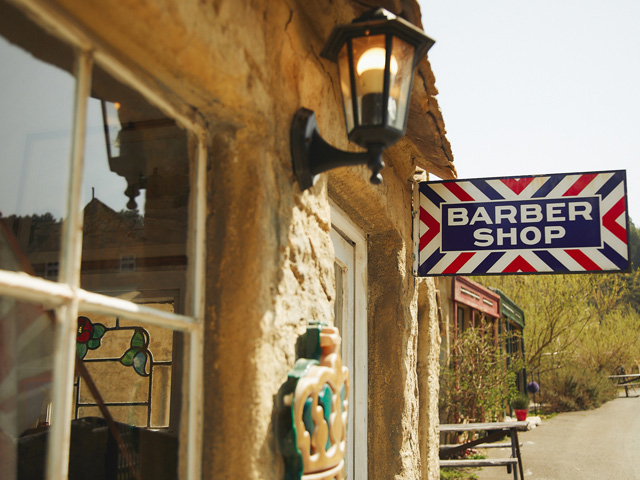
A beautiful green-filled stone cityscape and an English garden with seasonal flowers are a spot reminiscent of a good old English country town. In addition to authentic afternoon tea, you can enjoy fish and chips and meat pies at the tea room restaurant "Pontoak", so you can enjoy the taste of British country side to your heart's content. Antique shops, accommodation and wedding facilities are also included.
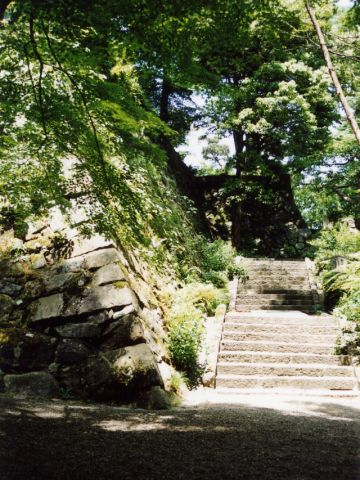
It was built by Mitsuhide Akechi at the time of Tamba Pingding, and Kameoka gradually developed as a castle town. It was later converted into a five-tiered tower in the early Edo period. It was also called Kameho Castle because of its beauty, but now mossy stone walls and Uchibori only tell the story of the time. The whole area including the castle site is on the premises of the religious corporation Omoto, so the tour is to be offered at the reception on the day.
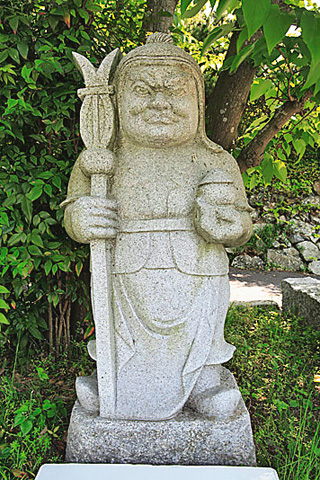
The No. 1 of the Tanba Shichifukujin, which has the alias of "flower temple"; and is loved as "Mr. Bishomon, who will give you a smile and a treasure." You can visit the Three Thousand Guancones in the Stone Buddha Garden, which is wrapped in four-season flowers.
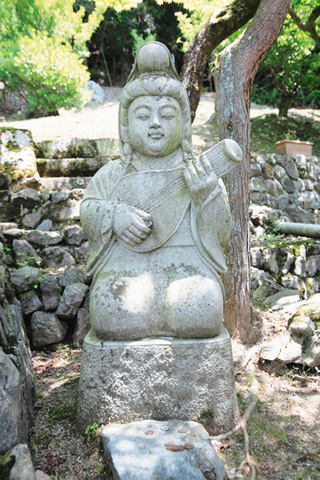
Suezera of the Jodo sect Sohonyama Chion-in Temple. Standing on the hillside of the mountain, it celebrates Benzaiten, which is said to be awarded with Bifuku and Shichinan. Benkoten, the only goddess of the Seven Lucky Gods, is said to be the god of India playing the pipa, and is also said to be the god of music and art.
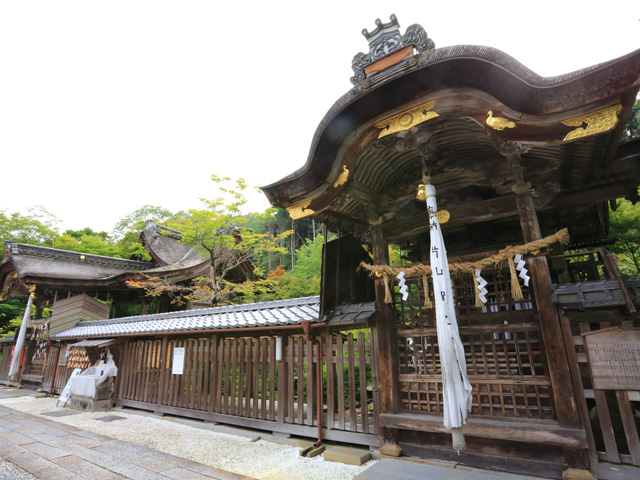
The old shrine of the Japanese copper 2nd year (709), which enshrines the two pillars of the great priesthood of the great priesthood god (Daigoku Shōmei) and Hōdada (Ojin Emperor). The present main shrine was rebuilt in the 11th year of Culture (1814) and features a majestic Gonzo style. It is also known as Kameoka's best spot for autumn leaves, and about 500 glazed autumn leaves beautifully dye the precinct in autumn.
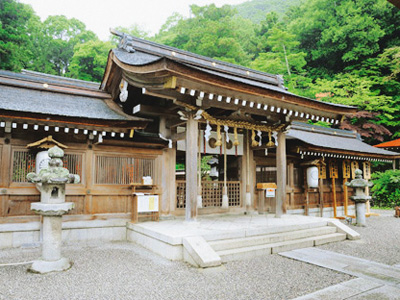
According to Shaden, Soken was the second year (709) at the Enki Shiki Uinami Taisha Shrine of Tamba Kuniichi. An ancient shrine dedicated to the great power of Izumo Taisha, Shimane Prefecture. Known as the main shrine of the National Designated Important Cultural Property, which is said to have been built by Takashi Ashikaga, is a formality with a cypress skin of Sanmasha style. The mountain rising behind it is the sacred power of the shrine, and the entire precinct is filled with sacred power. The Ojin water that springs up in the precincts is the water of Manai, which is said to bring happiness and have a long life if it is drunk. There are many attractions such as marital rocks and banza.
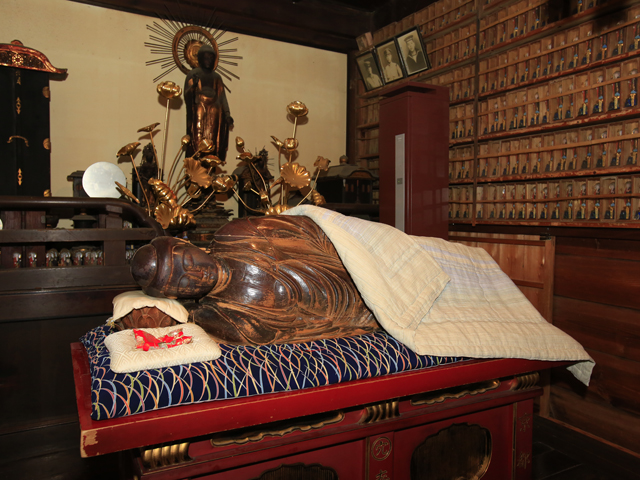
It is an ancient temple, which, according to the auspices, was erected in the second year of Gyeongyun (705), at the 21st place of the sacred place of the 33rd place of the west country. The statue of Honson Shōnen is a secret Buddha to be opened once in 33 years. Also, the life-size statue of a large nirvana Buddha enshrined in the side of the main hall is known as "Nade Buddha", and it is said that the disease can be cured if you stroke and pray in the same place as your own body. The Fukutamae (Fukutamae), which will be held on January 3, is a function in which worshippers take away the Fukutas flown by the priest, and it is said that if you grab a red card, you can become a millionaire.
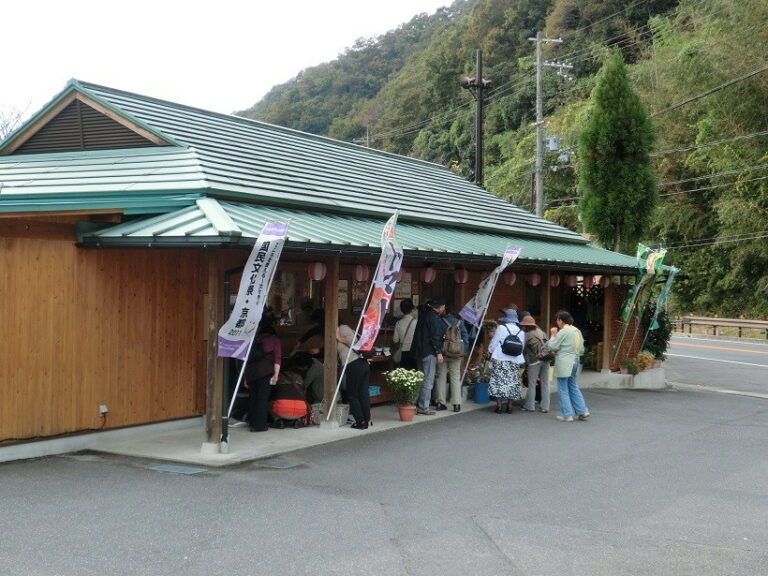
A direct sale shop that sells fresh vegetables that are freshly picked and grown by growers to be full of affection, as well as some specialty products representing the village, such as raw wood-grown shiitake mushrooms, tomatoes and sencha. There are a variety of products unique to Minamiyamashiro Village, such as miso, konjac, pickles, processed products using tea, original hojicha/sencha, shiitake ice cream, charcoal and straw sandals. A seasonal direct sales shop festival is also held as an event of the four seasons.
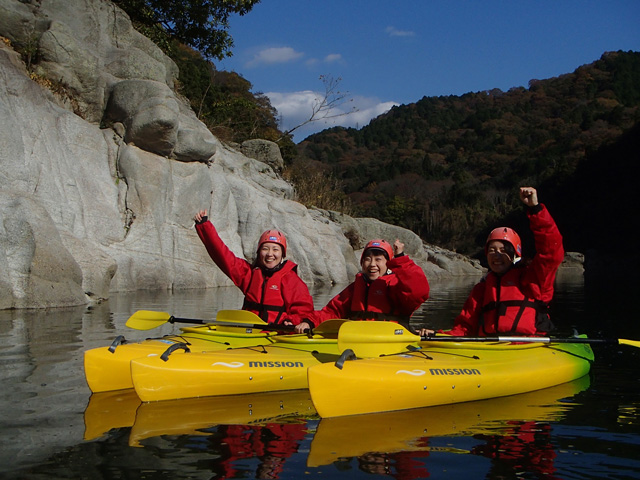
A tour for beginners who love canoeing from elementary school students to adults sponsored by Japan's leading canoe school operator. River Adventure Club (Aokikanoo Works) is an accredited school of the JRCA "Japan Recreational Canoe Association". Focusing on a river master with a JRCA-certified instructor, the canoe will help you navigate the first-time elementary school students and adults without anxiety. In addition to single-seater and two-seater canoes and kayaks, a sit-on top like a surfboard for children, there are types that have a sense of stability and are easy to navigate even for the first time.
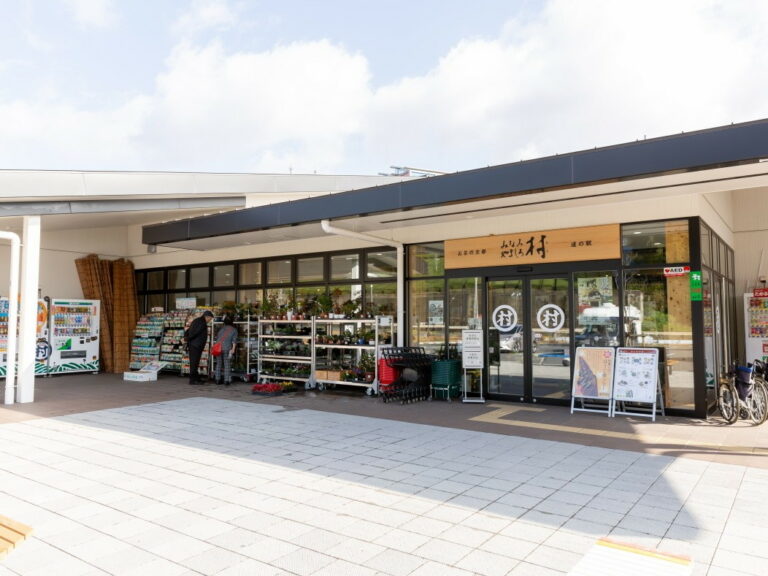
Roadside station stands in Minamiyamashiro Village, the only village in Kyoto. There are many original products that make use of the local characteristics of Uji tea. In the cafeteria, you can enjoy the "Murasoba set meal", a tea soba that uses plenty of fine spring-picked matcha, and in the takeout corner, you can enjoy the "Matcha soft cream" and gelato, which can enjoy bitterness and umami. In addition, the "Nomon Market", which is rich in specialty products, has a selection of matcha gourmets that are perfect for souvenirs such as puddings, pound cakes and dorayaki, and it is recommended to taste while looking at the tea plantations on the premises.











